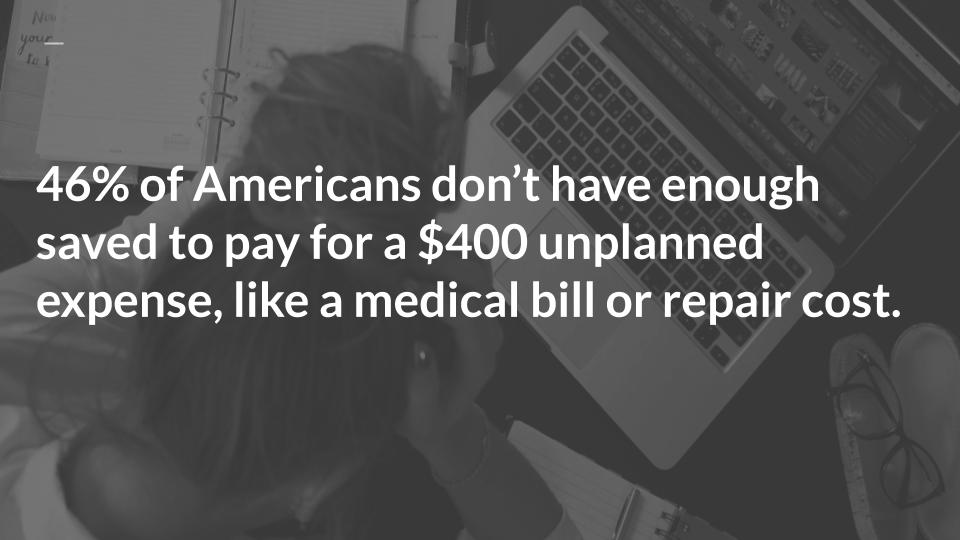According to the Federal Reserve, one in two Americans are living paycheck to paycheck. In other words, for half of all Americans, income is equal to or greater than expenses. For catering event staff, whose income spikes and dips seasonally, the proportion of staff living paycheck to paycheck is even greater.

While there is some debate over how we got here -- some economists note stagnant wage growth for the bottom 90% of households, while others point to the rise of the so-called “gig economy” -- there is no doubting the negative consequences employers are faced with today.
Employers pay the price...
Three out of four employers report that their employees are stressed as a result of personal financial issues. According to the consultancy PwC, over 40% of millenials are distracted by personal financial issues at work, and half of those spend 3 hours per week tending to their finances on the job.
What’s more, financially stressed employees miss twice as many days each year compared to their unstressed counterparts. Of course, this shouldn’t be surprising - if an employee has limited liquidity and encounters an unexpected expense, they might not have gas money needed to go to work until payday rolls around.

But employees pay even more
As a result of this predicament, American waste over $200 billion dollars every year on predatory, short term credit products just to make ends meet.
These are things like credit cards, payday loans, overdraft fees, late bill fees. You might not spend a lot of time thinking about them, but a portion of your employees are likely already using them. Payday loans are particularly malignant; in addition annualized interest rates that start at 391%, they can quickly balloon if not paid back in a timely manner, trapping employees in an inescapable cycle of debt.

How you can help
While there are no silver bullets to solve the problem of financial insecurity, employers can help by hosting workshops on financial literacy and budgeting. Of course, even the most financially literate employee can run into situations where unexpected expenses result in cash flow problems.
It is for these situations that my company, Nowsta, created a new financial wellness benefit called NowstaPay. NowstaPay allows the staff of participating employers to access the wages they’ve already earned but haven’t been paid out yet ahead of the regular pay-cycle. Employers who offer NowstaPay report decreased turnover and increased morale among their staff, particularly event staff.
More solutions will be needed in the years to come in order to fully address these inequities. In the meantime, employers should consider all the available options to assist their employees and maximize productivity.
Credit:
Maxwell Chapman
Head of Customer Success, Nowsta, Brooklyn, NY
Maxwell Chapman is the head of Customer Success and one of the founding team members of Nowsta, an all-in-one staff management platform that automates and simplifies scheduling, time-tracking, analytics, and payroll integration for catering and events companies.



